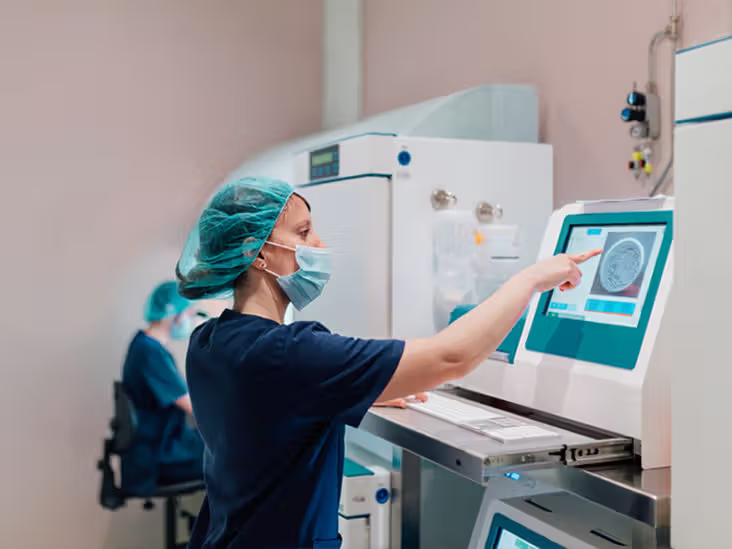
Why are Precautions after Embryo Transfer in IVF necessary?
Precautions after embryo transfer in IVF are necessary because even after the embryo is placed inside the uterus, it still needs a few days to attach to the uterine lining. Many top gynecologists of India recommend following these precautions, as they help increase IVF success rates.
After the embryo transfer, the chances of pregnancy improve when the uterus provides a supportive and calm environment. Proper rest, a balanced diet, sound sleep, and stress control all help the body remain stable. This balance allows the uterus to release hCG (human chorionic gonadotropin), the hormone that confirms early pregnancy.
However, this doesn’t mean that you need bed rest, because that can also be unhealthy; all you need is a gentle rest and to avoid exhausting your body. Because if this happens, then the uterus contracts too much due to strain, causing implantation disturbance. So, follow all precautions after embryo transfer in IVF, because every step of IVF is very delicate; a single mistake can disturb the embryo transfer and the IVF process needs a restart.
What to “Do” and “Do Not” after Embryo transfer?

To experience the positive signs after the embryo transfer procedure and natural pregnancy with the help of IVF, then do as your gynecologist advises and avoid any such things that lead to implantation failure. Here’s a detailed list of what you should do and avoid to experience the positive signs after embryo transfer.
Do Take these Precautions after Embryo Transfer in IVF
- Do take good sleep because, yes, sleep also plays an important role in the success of your embryo transfer procedure and IVF journey.
- Do take rest for 1 or 2 days, eat a nutrient-rich diet, and keep yourself hydrated.
- Do light activities like yoga sessions that keep your body moving.
- Do take progesterone supplements as advised by the doctor because this helps the uterine lining to stay thick and makes it suitable for implantation.
You should not do this after embryo transfer
- Don’t take complete rest: While precautions after embryo transfer in IVF require rest but you can cook, you can walk, you can do yoga, you can travel, and you can resume all your normal activities.
- Don’t expect symptoms of pregnancy after embryo transfer daily because it takes at least two weeks to experience positive signs after embryo transfer. Checking daily can lead to false hopes and stress.
- Don’t treat Google as your doctor or check every symptom. Connect with the best gynac in Nagpur for every new symptom or problem.
- Don’t compare your journey to others; everyone experiences different symptoms, and everyone’s journey is different.
- Don’t consume alcohol, excess caffeine, or smoke. Also, avoid a sedentary lifestyle.
- Don’t miss medications, and avoid heavy lifting as well.
Conclusion
Doctors advise taking rest, proper diet, supplements, and other Precautions after Embryo Transfer in IVF so that the uterus gets ready to implant the embryo. At Medigrace, an IVF centre in Nagpur, connect with the best gynac in Nagpur, who has helped various couples to experience parenthood again. By taking proper precautions like gentle rest, proper nourishment, emotional calmness, and following your doctor’s advice, you create the safest environment for implantation and experience IVF success without any problems. Lastly, remember, IVF success is not just about procedures; it’s also about the support you give your body and mind during this delicate journey.
To make IVF successful after embryo transfer, follow proper aftercare as advised by your gynecologist. Take your medications, eat a healthy diet, rest, and get enough sleep. Avoid any sort of stress; get involved in meditation to stay positive.
Gynecologists recommend a good 24 to 48 hours of rest after embryo transfer because the embryo is in the process of being attached to the uterine lining. Heavy activities can disrupt it. After 30+ hours of rest, you can continue with your normal routine.
According to the best gynac in Nagpur, women should not completely refrain from household work after embryo transfer; this keeps blood circulation normal. So, yes, house chores can be done after embryo transfer, but avoid getting exhausted.








